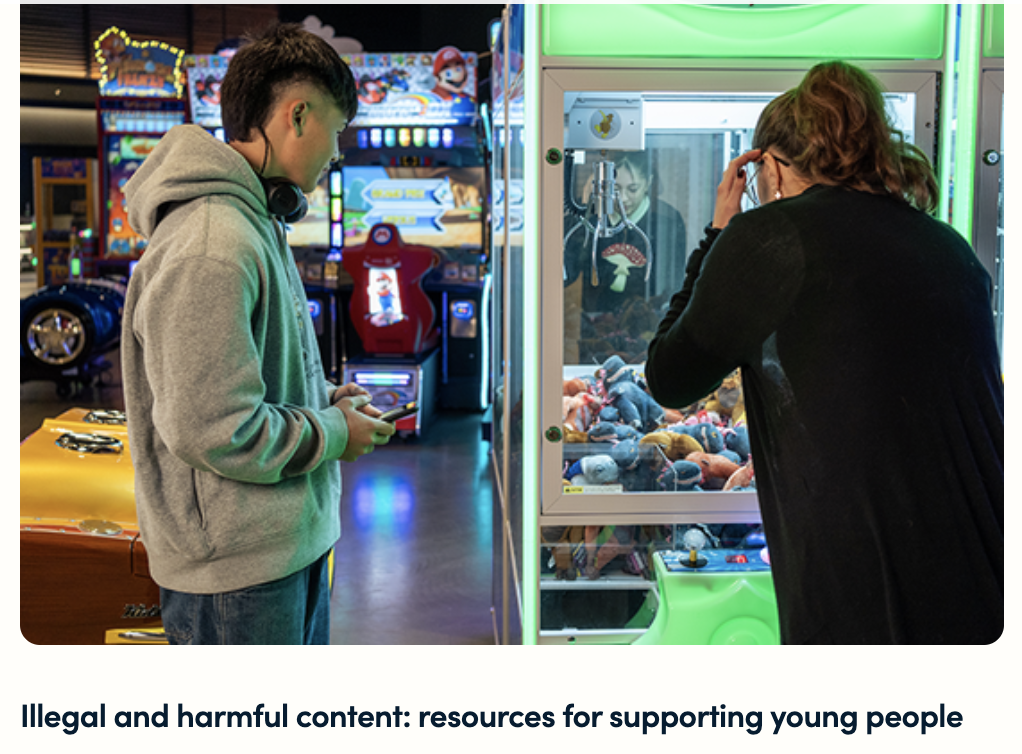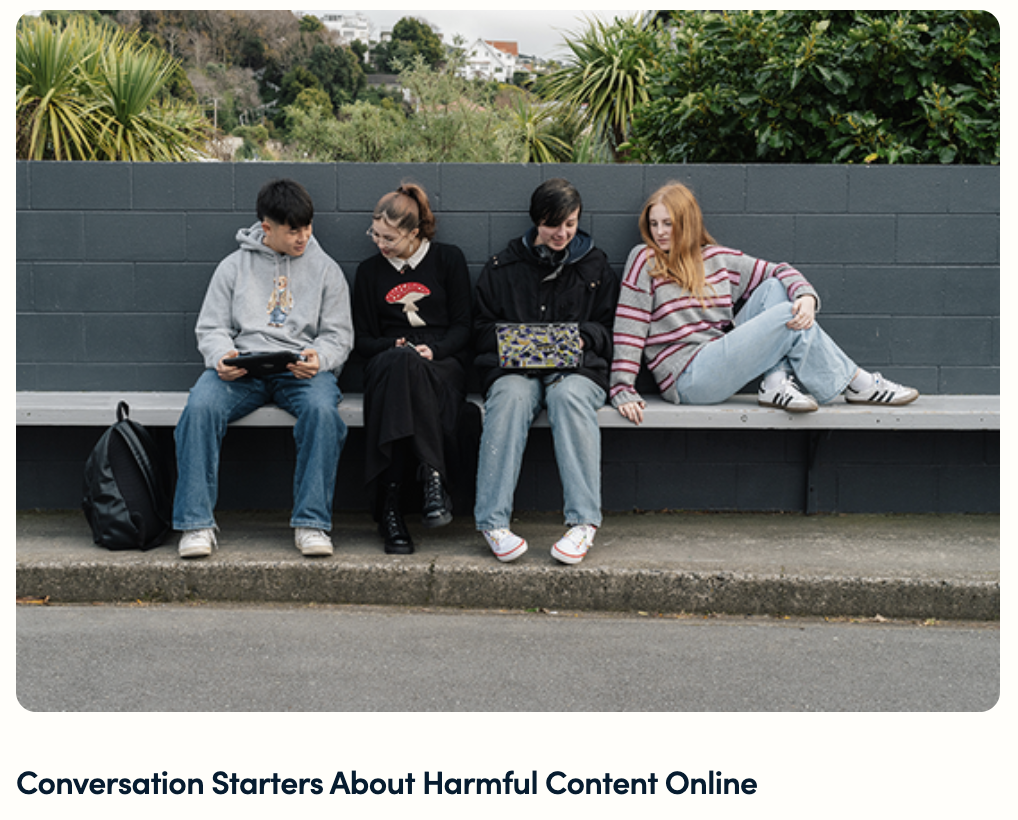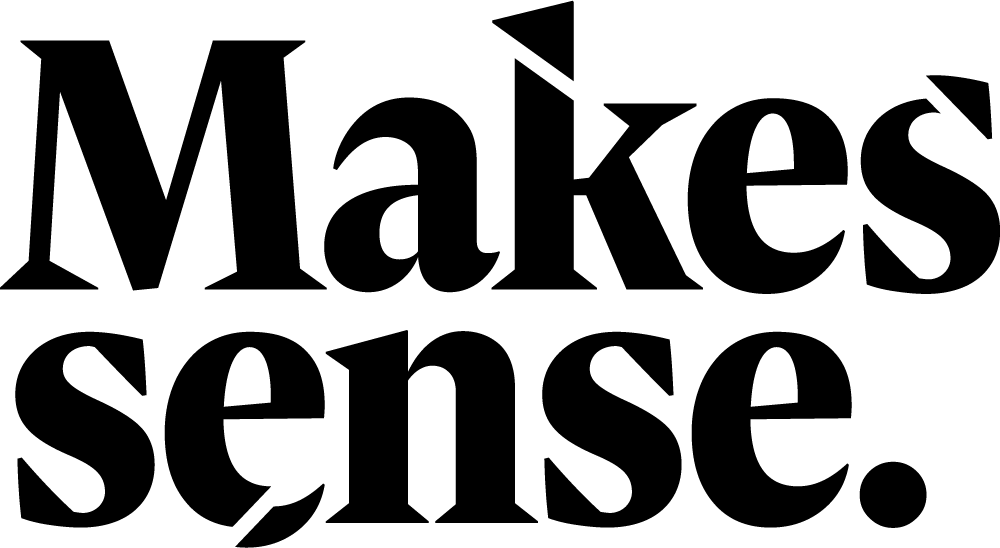RESOURCES AND RESEARCH
-

Teens and Porn Report Infographic 2022
This infographic highlights the key takeouts and results from the 2022 Commonsense Research into Porn and Teens.
-

Why we need to talk about porn, Jo Robertson, TEDx 2019
With one in four children being exposed to online porn by the age of twelve or younger, it's critical we know what they're seeing—and it's critical we talk to them about it.
-

Teens and Porn Report- Commonsense Media 2022
This new report explores how a demographically representative sample of US teens engaged with or experienced porn online.
-

NZHerald How to talk to your kids about porn, sex and technology.
Tips on how start and continue the conversations around porn, sex, and tech, with our kids and how to keep them safe online.
-

The Light Project
An evidence based NZ website for parents, caregivers, professionals and young people on how to positively navigate the new porn landscape
-

NZ Youth and Porn Report 2018
Research findings of a survey on how and why young New Zealanders view online pornography
-

Letter from Children's Commissioner UK on Report May 2023
Evidence on pornographys influence on harmful sexual behaviour among children.
-

Letter from Children's Commissioner UK on Report May 2023
This information sheet contains findings from the Children’s Commissioner’s survey of over 1,000 young people aged 16-21 in the UK.
-

Harmful Social Media Algorithms & Children with Imran Ahmed - Screen Deep podcast March 2025
On this episode, host Kris Perry talks with Imran Ahmed, founder and CEO of the Center for Countering Digital Hate, about the hidden dangers of social media algorithms, the risks youth face on various popular platforms, and the urgent need for transparency and accountability in digital spaces.
-

Illegal and harmful content: resources for supporting young people-Classification Office
These resources, from the Classification Office, include insights from young people and what it means for adults supporting them. They have been peer reviewed by Youthline NZ and clinical psychologist Dougal Sutherland from Umbrella Wellbeing.
-

Algorithims 101-Classification Office
Here’s a quick overview on how algorithms work to give us an idea of why extremely harmful content might be appearing in a newsfeed. Knowing about algorithms and how they work can help us to talk with rangatahi about how they can try to control or ‘curate’ their online experience in a positive way.
-

Conversation Starters About Harmful Content Online-Classification Office
Talking with our kids about what they might come across online is one of the best ways to help keep them safe. Here are some questions and ideas to help get you started.
GET HELP
-

TAKE IT DOWN
Having nudes online is scary,
but there is hope to get it taken down.This service is one step you can take to help remove online nude, partially nude, or sexually explicit photos and videos taken before you were 18.
-

The Light Project
An evidence based NZ website for parents, caregivers, professionals and young people on how to positively navigate the new porn landscape.
Up to date research, insights, emerging trends and guidance for how to support our kids.
-

Illegal and harmful content: resources for supporting young people-Classification Office
These resources, from the Classification Office, include insights from young people and what it means for adults supporting them. They have been peer reviewed by Youthline NZ and clinical psychologist Dougal Sutherland from Umbrella Wellbeing.
-

Algorithims 101-Classification Office
An overview on how algorithms work to understand why extremely harmful content might be appearing in a newsfeed. Knowing about algorithms and how they work can help us to talk with rangatahi about how they can try to control or ‘curate’ their online experience in a positive way.
-

Conversation Starters About Harmful Content Online-Classification Office
Talking with our kids about what they might come across online is one of the best ways to help keep them safe. Here are some questions and ideas to help get you started.
-

NETSAFE HDCA 2015
Under the Harmful Digital Communications Act (HDCA) Netsafe assesses and investigates complaints about harm caused to individuals by digital communications.
UNDERSTANDING GOVERNMENT FILTERS, ILLEGAL CONTENT AND INTERNATIONAL MECHANISMS TO PREVENT HARM
Preventing online harm requires strong systems that block access to the worst content. Expanding tools like the Digital Child Exploitation Filtering System (DCEFS) to include extreme and illegal material helps stop the spread of abuse. Internationally, countries are moving to hold platforms accountable through policy and enforcement.
These international and local strategies together are essential for reducing harm and protecting our kids online.
Tighter restrictions needed RNZ May 2023
DIA new regulatory review proposal - ‘Safer Online Service & Media Platform’ regulator


